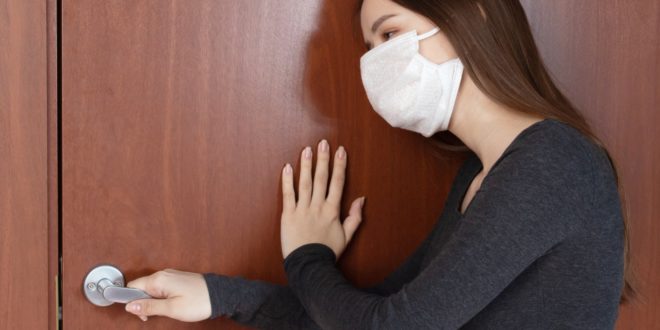Some of us live in fear of germs, while others fear missing deadlines. Most of us are perpetually afraid we’re forgetting something. We’re obsessive (preoccupied), and compulsive (driven by the need to act on our preoccupations). We’re not crazy; we have obsessive-compulsive disorder (OCD).
I’ve experienced to varying degrees a veritable alphabet of abbreviated disorders: obsessive compulsion, depression, anorexia, panic, and generalized anxiety.
What’s Wrong With Me?
I’m not crazy. I’m high-functioning and reasonably successful. But I have spent a lot of time wondering what’s wrong with me.
Why did every silver cloud have a stormy lining? Why were anger and self-starvation the only things that gave me a sense of control over my life? And why did past events and conversations spin and skip like scratched CDs in my head until I couldn’t focus my attention on anything else? Most importantly, why didn’t God take it all away and make me “normal?” It wasn’t as if I hadn’t asked. I spent years begging for deliverance—from whatever it was.
My early 20s were a little better than my teens. I worked three jobs and got excellent grades. I wasn’t eating, and I had chest pains from the stress, but hey, I thought, that’s college. At least anxiety kept me too distracted to be depressed.
I even began to draw energy from the buzzing in my head. Constant frustration became part of my identity, and I was OK with that. I’d rather be the angry girl in the middle of the room than the sad, helpless girl crumpled in the corner. But eventually, the anxiety became too much as well.
Certain things would set me off: an agenda one item too long, a personnel conflict at work, a clash of philosophies with a friend. Sometimes it began so subtly that I couldn’t trace it to a source. What most people experience as a mild and temporary irritant, I experienced as hives. I would feel sudden waves of heat and sometimes nausea. My chest would constrict and tears would press against my eyes. These feelings would pass, but they never passed quickly.
Medication
“I know you don’t like the idea of medication,” my mom began gently. I had called her one Sunday morning after breaking into sobs half an hour earlier. “But maybe you should give it a try.”
She was right; I didn’t like the idea of medication. I have to be half dead before I’ll even take Tylenol. I’m a defiantly independent, highly-productive, self-starting, bootstrap-pulling Midwesterner. We don’t do pills.
But at what cost do we “not do” pills? I know a father who refuses to take medication for bipolar disorder. He’s not dependent, but he has sacrificed his relationship with his kids, who never know which dad he’s going to be next.
That’s not what I wanted for my relationships. That’s not what I wanted for my life.
Still, a shadow of shame hung over me. I felt like I had failed at life. I braced for reactions to the course I was considering: everything from a not-so-insightful “You’re fine, you don’t need medication” to the puzzled and pitying “I had no idea! You don’t seem nervous…” I wanted to wear one of those sandwich board signs. On the front, it would read, “I’m not crazy!” On the back, “I’m not quite OK either!”
I asked my fiancé if his perception of me would change—if he would think me weak and shift from admiring to feeling sorry for me—should I try medication.
“Kate, if there’s one thing I know,” he said, “it’s that we in ourselves are not enough. None of us has it all together!”
Prescription
So I finally did it. I made an appointment with my doctor, told him how I was feeling, and allowed him to do what he had wanted to do for me a year ago: write a prescription.
They say to allow six weeks to see positive results from my medication. I was better the next day. Yes, there were side effects—I was strangely thirsty and irresistibly drowsy for about three days—but my total experience has been nothing but positive.
I had no idea how many crevices of my life anxiety and depression had seeped into until they were gone, and those same cracks and holes were showing light. Suddenly time didn’t fly by so frantically. I would wake up and feel rested. Driving through town no longer caused a rush of terrified adrenaline. I could lock the door and go to bed instead of getting up again and again to check it.
My journal entries shifted from detailing panic attacks to expounding on the fascination I now felt for everything around me. It was as if a haze that had hung for decades in the air was finally lifted, and I could see! My experiences became richer, my passions more fulfilling. I was the same core person I had always been, but I had the pleasure of my own acquaintance for the first time in my life.
Healing and Happiness
To those who say that enough prayer and faith exclusively will cure anything, I have this to say—please stop. Despite what I’m sure are good intentions, you’re not helping. Admitting we need this kind of assistance is hard enough without being made to feel like faithless weaklings.
Can God heal mental disorders without medication? Of course. God can also raise corpses from the dead, but we don’t point fingers when that doesn’t happen. If I had a broken arm and a fully-equipped hospital next door, who in their right mind would tell me to sit still and pray my bones back into place?
To those who identify with my experience, it is neither your right nor your responsibility to decide on God’s behalf how He will make you whole. There is nothing contradictory in this; there is no shame, no failure. God created the doctor who can diagnose and treat you just as legitimately as He is the source of healing in general.
As one of the angels says in C.S. Lewis’ The Great Divorce, God created you for infinite happiness. If medication is what clears your head so you can get on with the life God made you to live to the fullest, by all means, take medication. Getting the help you need—whether that means traditional medicines, homeopathic treatments, or some other method of improvement—is your right and responsibility as a steward of the life and gifts God has entrusted to you.
If you liked this, you might also like Can God Use Me? | Obsessive-Compulsive Disorder (OCD)
This article first appeared in the October 2007 issue of the Mid-America Outlook and is reprinted with permission.
© 2002 - 2024, AnswersForMe.org. All rights reserved. Click here for content usage information.
 Answers for Me Support & encouragement for every-day life
Answers for Me Support & encouragement for every-day life



